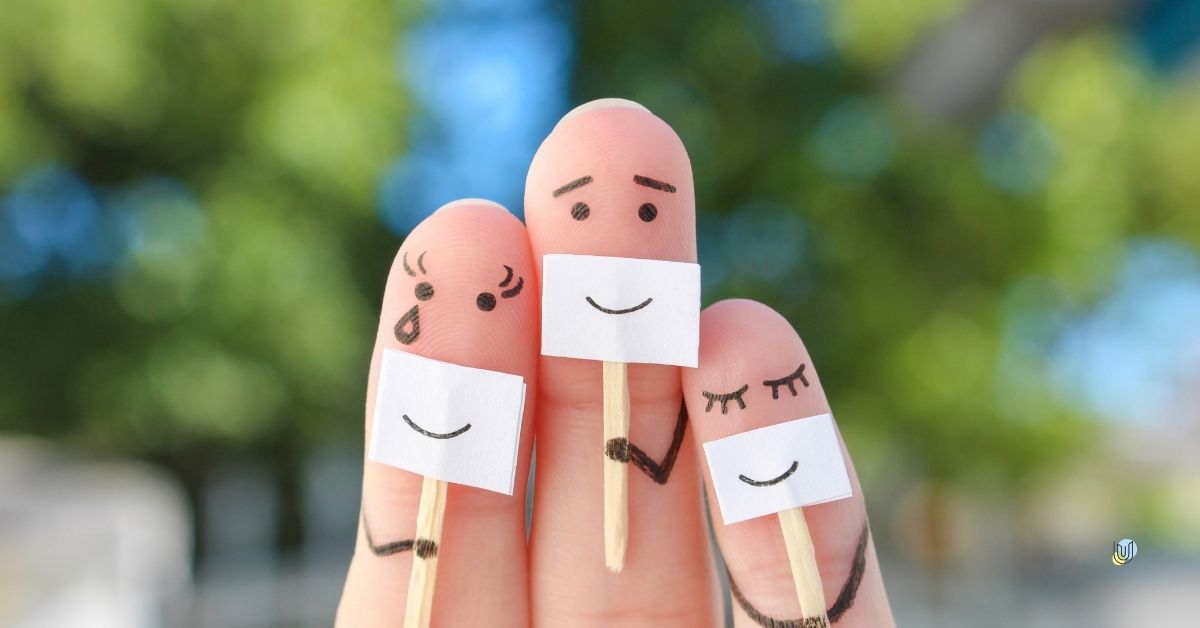I grew up the opposite way of what Thai society expects a woman to be.
My name is Busayapa Srisompong, but I go with the Thai nickname “Best”, in the 90s it was trendy for parents to give English nicknames to their kids, so I ended up with the nickname “Best”. I grew up in a government officer family with my two bothers. I am 25 years old. I graduated from the faculty of law in Bangkok and I then worked for a while for the Corporate and government sector. But in 2016, I moved to Mae Sot, a town located at the border of Thailand and Myanmar, to work in the field I was interested in, which is providing access to justice for marginalized groups such as women, children, migrants, refugee and stateless persons.
Now, I work for a local NGO and its partnering community-based organizations and I provide them with advocacy strategy for migrants and marginalized people while also providing pro bono legal services, particularly on gender-based violence cases to anyone who seeks legal assistance regardless of their status, or their gender.
Also Read
If I had to define myself, I would say that I am different. I think I grew up the opposite way of what Thai society expect a woman to be. I just do whatever I want, whether it is to play football, dress like a man or be outspoken and denounce our patriarchal society.
I wish to encourage women to speak up and that’s what is driving my work.
I was a victim of domestic violence.
There is one particular experience in my life that made me want to fight for women’s rights. I was a victim of domestic violence. My boyfriend abused me for almost a year.
In spite of the fact that I had helped many women victims of domestic violence escape from the situation and get legal assistance, when it happened to me, I couldn’t get out of it. I stayed with him, each time he abused me I forgave him, I thought I could save him. I was able to help other women facing the exact same situation, but I was helpless for myself. Thankfully, I had strong and empowered women standing by my side and it made me realize that I had to do something about it, I had to make it stop.
I filed a report against him. I was so upset at the police officers who received my complaint because they were saying that this was just a minor case and that I shouldn’t bother to file a report. They even said that there is a good chance that I would go back to him anyway. I walked out of the police station and I cried. The second time I went to the police to file a report, I was determined not to let them discourage me, so I told them straight that they should not even try to talk me out of it, there was no compromise permitted, and I let them know that I knew the law. I had to threaten them and make sure that they understood that I was a lawyer so they’d register my report. Eventually, the case made it to the court. I couldn’t go there the day of the trial, I couldn’t face my boyfriend again, although I made sure he had a lawyer and an interpreter (he was a foreigner).
Now I understand completely how hard it is for women to speak about the violence they are victim of and to report them. Reporting domestic abuse is an ordeal to face because going through the police and the justice is a hassle. For most women, if they aren’t accompany by someone who knows the law or someone supporting them it’s nearly impossible to pull it through.
This experience that affected me personally and all the cases of domestic violence that I have handled made me want to do something more to tackle this issue. I created the project SHero.
In Thailand, people don’t talk about domestic violence, it is taboo, even though the number of victims of domestic violence is gradually increasing annually.
Aside from my full-time job, I developed and implemented a project named, SHero (The name is a play of word between the word “She” and the word “Hero”, to represent female hero.)
The project’s mission is to create a domestic violence free world by encouraging and inspiring young people to empower their own communities. The project aims at tackling the Thai culture of abuse and inequality in gender which creates a circle of violence in families, schools, communities and therefore the whole society. In Thailand, people don’t talk about domestic violence, it is taboo, even though the number of victims of domestic violence is gradually increasing annually.
Domestic violence is something that occurs frequently in Thailand. In 89% of domestic violence case, the victim is a woman (this percent also includes trans-women). For 10 years now, the Thai legal framework has implemented the Domestic Violent Victim Protection Act (2007), nonetheless the number of victims of gender-based violence hasn’t decreased. Law enforcement bodies don’t even understand the essence of this law and the relevancy to protect victims of domestic violence.
Additionally, victims of domestic violence often feel embarrassment and try to protect their family by not reporting it. The judicial system is not encouraging women to seek for assistance, protection and justice. Plus, the Thai judicial system treat cases of domestic violence totally differently depending on the victim’s social status, because social status does discriminate people. It is also a societal problem. For instance, if there a scold between a boyfriend and his girlfriend and the man slaps the woman across her face in public, people will think that it’s normal and that they should not intervene because it’s a couple problem. They also think that no matter what they do, the woman will go back to the man anyways so they should not get involved.
Finally, and even though the government is trying to make some changes at the policy level in order to protect and empower women, it has failed to work from the ground up level, and has failed to work on bottom-up policy making process to make real changes.
Compliance to the concept [of gender equality] would be strengthened if people were familiar with it from childhood.
Thailand is a country with a culture of men having more power than women. Girls in Thailand are supposed to act a certain way, with ladylike manners. We grow up in this type of culture where girls and women’s behavior is constantly limited and judged. If a girl or a woman starts acting not ladylike regarding the standards of the culture, then she is judged and frowned upon.
I think gender discrimination is everywhere but, Thai women mostly don’t react like a westerner who will speak up and be straight forward when facing this situation. I feel that Thai women aren’t confident enough yet to speak up and denounce gender discrimination. Their mannerism is that they will not say things directly.
Besides, I don’t think Thai people are really aware of the concepts of gender equality and gender discrimination. Although, nowadays, people speak about it in the media and the new generation talks about it, I don’t think they really get it. They tend to say that both genders are equal, but they always add a “but” to it. Perhaps, they are aware of it but they don’t really believe in it.
Gender equality should be taught and respected everywhere, whether it’s at school or in the workplace. The concept of gender equality would be better understood if it were taught sooner, thus at school. And more importantly, compliance to the concept would be strengthened if people were familiar with it from childhood.
Gender-based violence is not just an individual’s issue, it concerns the whole society.
Having been through domestic violence myself, I was struggling to reach out to people for help and protection. I had a hard time fighting for my rights and getting justice, even though I am a strong educated woman with a law degree. It was really hard, even for me. I was fragile. But the moral support and the strength that my friends gave me are what helped me to speak up and finally stand up for my rights. I learned that Thai culture silences victims of gender-based violence.
I realized that the first thing that a victim of gender-based violence needs is the emotional support from her community. I was lucky to be surrounded by empowered and strong women, and, of course, empowered women help empower other women.
I figured that we need to empower the young generation and the community to de-normalize domestic violence so that it is no longer deemed normal and no longer accepted by the majority of the society. Nothing justifies gender-based violence, nothing justifies that domestic violence be accepted and tolerated by the society.
In that sense, the project SHero aims at encouraging and inspiring young people to empower their own communities and to denounce and condemn violence against women because it is not just an individual’s issue, it concerns the whole society.
Women victims of sexual assault, rape or any type of violence are still the one being blamed by the society, in most cases.
First and foremost, for women to be more comfortable to share their story of sexual assault or harassment, the society has to offer emotional support to them. When a woman is a victim of a sexual assault or harassment, her community, friends and family should first support her emotionally. They should encourage the victim to speak up and tell her that she has the right to speak up and seek for justice. But they also have to be compassionate and let the victim take the time she needs to feel strong enough to speak up and go through a legal action.
People who are closer to the victim are those who should offer emotional comfort, but so should everyone else. When women send their story to me, I check with them whether sharing their story publicly will affect them afterwards and I try to help them with emotional support as much as possible.
In rural areas, the situation is even harder for women. They don’t speak about these issues a lot because they believe it’s an embarrassment toward one’s image and it’s shameful to their family. In urban areas, it is not much different, women worry about their image and their reputation being tarnished, and thus they will, most of the time, decide not to speak up.
Women victims of sexual assault, rape or any type of violence are still the one being blamed by the society, in most cases. This happened to my friend’s younger sister. She was at the university. Sexual harassment happens quite often towards women attending university. In her case, she was drunk and people on the internet blamed her for not behaving like a good girl. They said that nothing would have happened if she had behave properly.
If there’re a thousand ‘SHeroes’ in all regions of Thailand, we can then create a gender-based violence free country.
I would like people to speak about gender-based violence more often and I would like them to be aware of the impact that gender discrimination, violence or sexual harassment have on women’s lives. If everyone could come together and bring this topic on the debate table and admit that this problem exists, I think then we can make a difference and this can change the culture, trend, and eradicate gender stigma.
For those reasons, I spend a few times a month going to communities to empower women, give them support and legal advices. Within a few months, I have empowered more than hundreds of people, now there are support groups in each community I work with. I have been working with young lawyers and social workers on how to deal with domestic violence cases and on how we can support each other, most importantly I encourage them to empower their own communities. SHero’s ambition is to create an empowering community network of more young people that together can reach thousands and millions of people.
If one ‘SHero’ can create changes in his/her community, imagine if there’re a thousand ‘SHeroes’ in all regions of Thailand, we can then create a gender-based violence free country.
The only thing that has changed is that now society is starting to speak more about this situation, but nothing has really drastically changed. We need to do more.
We agreed that people wouldn’t understand and care about gender-based violence until it happens to you too.
So five months ago I had the idea to create a movement and I believed that the best way to grow attention was by using social media because it does not require any team, funds, or much time to have a great impact. The idea popped up when I was having a conversation with a female university student on sexual harassment. I met her to give her legal advice and moral support. We were talking about how sad it was, when women faced sexual assaulted, when women started to speak out, automatically the society is blaming the victim. We agreed that people wouldn’t understand and care about gender-based violence ‘until it happens to you too’. I realized that it is happening everywhere, at every second, but that we just don’t talk about it. But what if I say ‘it happened to me too’ would other girls/boys start talking about it?
So on August 2017 I started the online campaign #ithappenedtometoo, months ago before the #metoo campaign that is going viral and is flooding the internet with personal stories of assault. I initiated my campaign with a post on Facebook with a picture of myself holding a piece of paper with the text #ithapennedtometoo written on it. The main objective was to spur a wake-up call on violence against women, but also to invite people to contact me if they were seeking for support and legal advice.
I shared my personal story to encourage other survivors of gender-based violence to do the same, and to let them know that they were not alone. I invited people to send me their stories and a picture of themselves with the hashtag “ithappenedtometoo” to break the circle of silence and encourage other victims to connect with the project SHero. The responses went beyond my expectations. Thanks to this campaign, many women came to me to seek for support and legal advices. We connected because we all went through the same type of situation. The campaign was supposed to last just one day, on the 19th of August, but I decided to make it last longer.
This campaign was also the occasion to educate men on their behavior that are offending to women. There is a lot of work on educating men. They need to stop cat calling, it is basically sexual harassment but they still think it’s cool and inoffensive. They need to respect women’s dignity enough and understand that it’s not funny to do these things to a girl. They might not even be aware of gender discrimination and what constitutes gender-based violence such as sexual assault and sexual harassment. When you say something to them they say “girls, why are you so serious? “. It is crucial to keep speaking up and raising awareness on violence against women if we want to drastically change our society’s mindset.
SHero’s #ithappenedtometoo campaign will always be the space for anyone who wants to stand against violence against women together. The voice of the new generation is growing, the young people are putting into question our culture and our society. Some are not ready yet, I believe one day they will.













